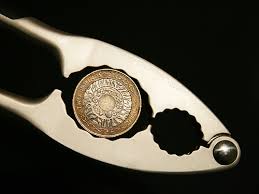P1: Life is turning out to be an interesting jigsaw.
I am traversing a magical last supper to be in destiny of a daily bread.
Need to tweet a lot about how religion has activated myself
which was once the twig of my life.
P2: Need to be a catholic in the purest of the senses.
Yet, I need to show my love for the masses of all the religions.
Liberating spirits of semitic religions and my narcissist
tendencies are the most important challenges in my pathways.
P3: My life needs to be an artwork;
wherever in the world I need to be a simple man out of these worldly affairs.
Be a good leather for the leaves of my grass.
It may seem to be odd to the human eyes;
but I need to cleanse this magic island out of its original sins.
P4: This is the only way I can find out the emperor love in my, myself.
Let my songs of innocense breed and bread thousand of fractals.
P5: As Godard said once;" every thought shall recall the debris of a love".
My love for life shall be an endless story like the bridge between
nano-life and relativistic motion of planetary system.
Natures lures me to decrypt many more pearl leaves out of its factbook.
P6: Only time be the tide in this titanic voyage.
When voices of god are unheard, only life can be the light of Asia.
Henceforth this universe. Buddhist dialectic is nothing but
laughing Buddha and melancholic Jesus and melodramatic Krishna.
P7: Love knows no dialectic; only a semiotic balance of signs.
It is our duty to be righteous and upright about it.
Passion of Christ is to traverse and converse with all the people of all the lost worlds.
P8: In the sixth, seventh and the eighth senses, no racism can exist;
there are no extremes or poles, only righteous middle path.
I am traversing a magical last supper to be in destiny of a daily bread.
Need to tweet a lot about how religion has activated myself
which was once the twig of my life.
P2: Need to be a catholic in the purest of the senses.
Yet, I need to show my love for the masses of all the religions.
Liberating spirits of semitic religions and my narcissist
tendencies are the most important challenges in my pathways.
P3: My life needs to be an artwork;
wherever in the world I need to be a simple man out of these worldly affairs.
Be a good leather for the leaves of my grass.
It may seem to be odd to the human eyes;
but I need to cleanse this magic island out of its original sins.
P4: This is the only way I can find out the emperor love in my, myself.
Let my songs of innocense breed and bread thousand of fractals.
P5: As Godard said once;" every thought shall recall the debris of a love".
My love for life shall be an endless story like the bridge between
nano-life and relativistic motion of planetary system.
Natures lures me to decrypt many more pearl leaves out of its factbook.
P6: Only time be the tide in this titanic voyage.
When voices of god are unheard, only life can be the light of Asia.
Henceforth this universe. Buddhist dialectic is nothing but
laughing Buddha and melancholic Jesus and melodramatic Krishna.
P7: Love knows no dialectic; only a semiotic balance of signs.
It is our duty to be righteous and upright about it.
Passion of Christ is to traverse and converse with all the people of all the lost worlds.
P8: In the sixth, seventh and the eighth senses, no racism can exist;
there are no extremes or poles, only righteous middle path.

